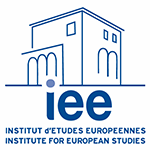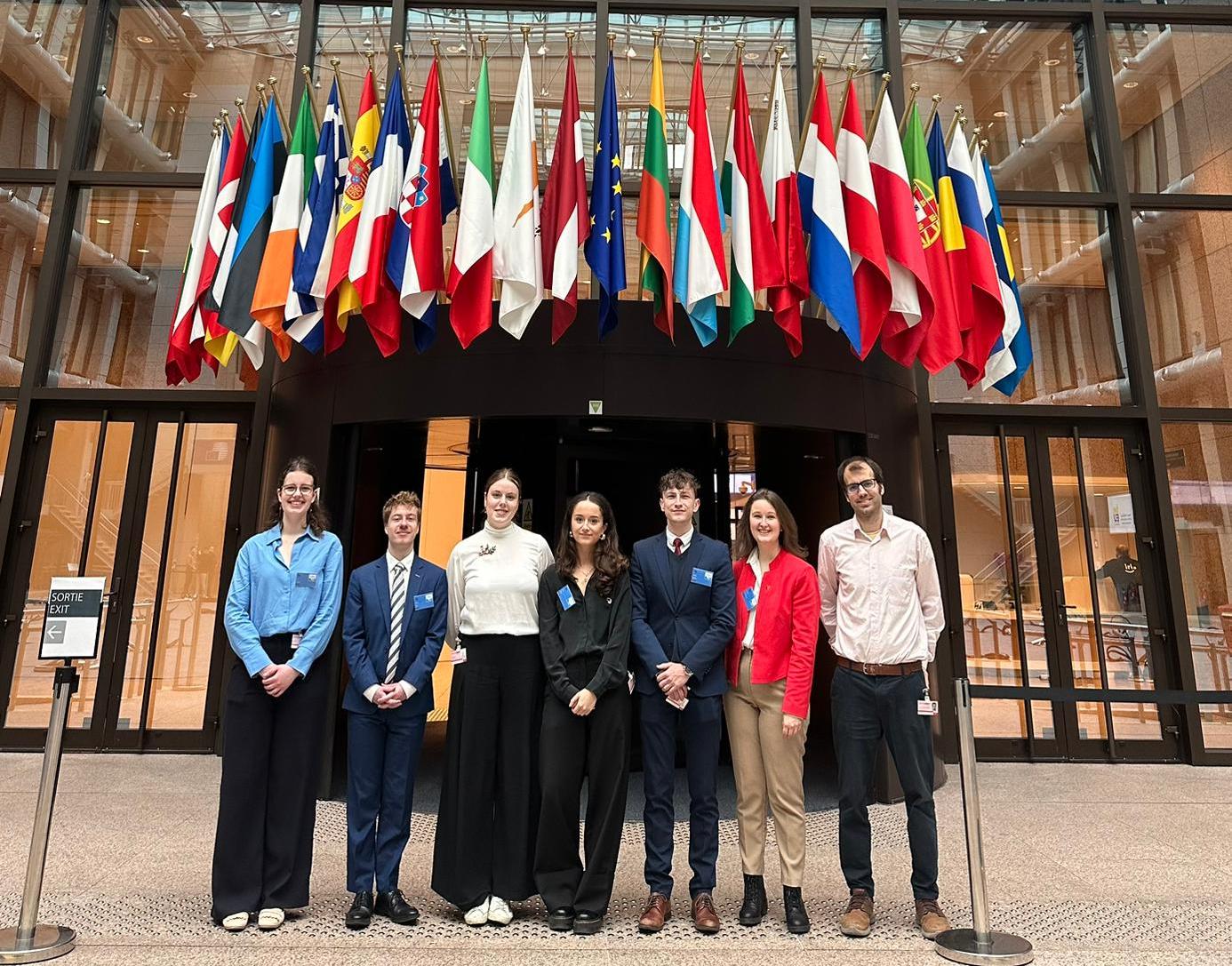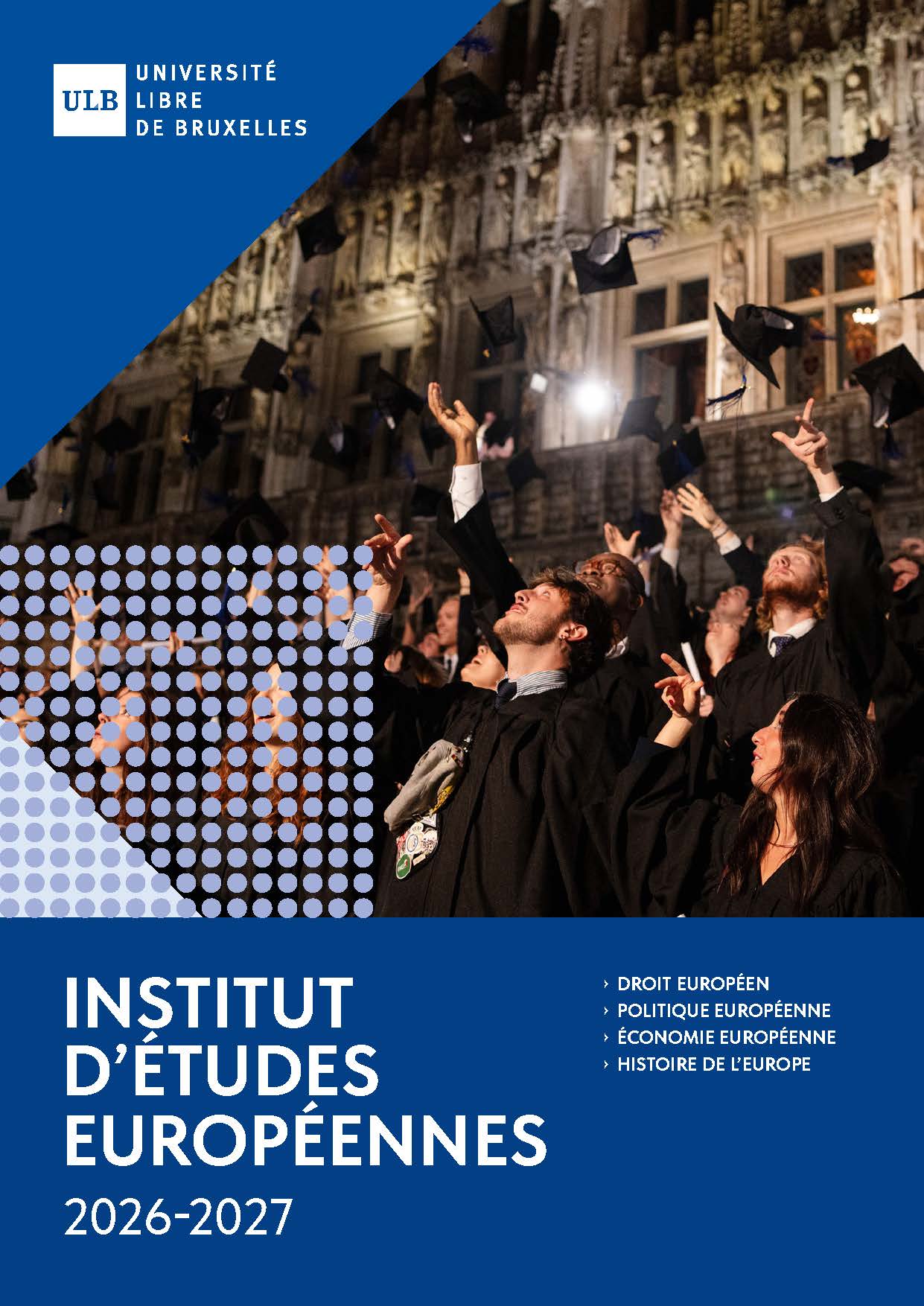In the same section
-
Masters and Advanced masters in European Studies
- Advanced Master in EU Interdisciplinary Studies
- Advanced Master in European Law
- Master in European Studies - EU policy track
- Master in European Studies - EU-Asia track
- Master in European Studies - EUROSUD track
- Master in Economics – Business Economics
- Master in Economics - Economic Governance and Public Policy in Europe
- Summer Schools and Conference cycles
- Innovative teaching activities at the IEE-ULB
- PhD
-
Share this page
Innovative teaching activities at the IEE-ULB
The Institute for European Studies is constantly striving to promote the professional integration of its students into the labour market. To achieve this ambition, several professional development activities are offered, either as part of our programmes or outside them.
The IEE-ULB also takes particular care to ensure that theoretical teaching activities are complemented by opportunities for practical application through simulation exercises and role-playing. These activities enable students to acquire cross-disciplinary skills, particularly in written and oral expression.
Discover some of our innovative teaching activities
- Professional development courses
-
A pioneering initiative at ULB, professionalisation courses are compulsory in the Master’s in European Studies and the Advanced Master’s in EU Interdisciplinary Studies.
Taught by two practitioners, Mr Nicolas Dross and Mr Emmanuel Sigalas, who both work at the European Commission, these courses aim to give students a better understanding of the reality of the job market and help them build a career plan in line with their desires and aspirations. They are complemented by regular contributions from external speakers from a variety of professional backgrounds (European institutions, the private sector, consultancies, NGOs, etc.), illustrating the diversity of career opportunities available to European studies graduates. They complement the activities offered by the University's dedicated InforEmploi service, focusing on issues specific to European studies students.
The courses are complemented by compulsory internships of at least five weeks, which students can complete in Belgium or abroad in the location of their choice, followed by the writing of an internship report aimed at drawing lessons from the experience.
- Mentoring and visits
-
The professional development of our students is also supported by extracurricular activities that take place on and off campus. These activities are open to students enrolled in the Master in European Studies, the Advanced Master’s in European Law and the Advanced Master’s in EU Interdisciplinary Studies
At least one mentoring session is organised each year to enable students to talk to IEE alumni about the prospects and challenges encountered during the search for their first job in the European bubble. Other activities are developed throughout the year to facilitate informal exchanges between members of the IEE alumni community.
Members of SAIES (Students' Association of the Institute for European Studies) also organise each year a series of visits to institutions such as the European Parliament, the Council of the European Union and NATO.
- European Law Moot Court (ELMC)
-
The European Law Moot Court is an international moot court competition held each year between university teams of students interested in European Union law. The participants' written and oral contributions realistically reflect the course of European legal proceedings. The grand finale of this prestigious bilingual competition is held annually at the Court of Justice of the European Union in Luxembourg. A team of students from the Advanced Master programme in European Law represents the ULB in this competition every year.
- Simulating co-decision
-
The aim of the course, offered to students of the Master’s programme in European Studies, is to familiarise students with the ordinary legislative procedure of the European Union through practical experience and simulation of the real decision-making process. The skills targeted relate to negotiation in its many dimensions: knowledge of formal and informal rules, ability to build strategic alliances/majorities, ability to speak in institutional sessions, management of constraints related to the negotiation framework (time, meetings, secretariat, etc.), mastery of drafting amendments and oral expression in sessions within a European Parliament committee or a meeting of the Council of the EU.
- ConSIMium
-
The General Secretariat of the Council of the European Union and the European Council has set up an annual simulation exercise for students to simulate the work of these two institutions. In this context, each EU Member State is represented by six master students who simulate the work of the Council of the EU and the European Council at all levels on a specific dossier. The Commission and the Council Presidency are involved in accordance with their institutional roles, chairing the simulated meetings.
- SPECQUE
-
The Canada-Quebec-Europe European Parliament Simulation, more commonly known by its acronym SPECQUE, is an international French-language simulation of the European Parliament. Created in 1998 by students at Laval University (Quebec, Canada) to better understand the functioning of European institutions and the major issues facing the European Union, SPECQUE is now the largest French-speaking simulation of the European Parliament in the world. During this simulation, participants from European and Canadian universities, as well as other geographical areas (Morocco, Lebanon, the Caribbean, etc.), reproduce the workings of the European Parliament. The IEE supports the ULB delegation to SPECQUE, which is made up of students from various backgrounds and different faculties within the University, and several professors (Chloé Brière, Amandine Crespy, Ramona Coman, Paul Dermine and François Foret) act as academic mentors.
Mon équipe et moi avons été ravis de travailler avec toutes les autres délégations ! Cela vous permet d'avoir, de l'intérieur, un aperçu des travaux du Conseil, de la manière dont la législation est élaborée au sein de l'institution, des éléments nécessaires pour parvenir à une situation profitable à tous, mais aussi de pouvoir rencontrer 26 autres équipes dans un cadre à la fois sérieux et sympathique et dans un esprit de cohésion.


